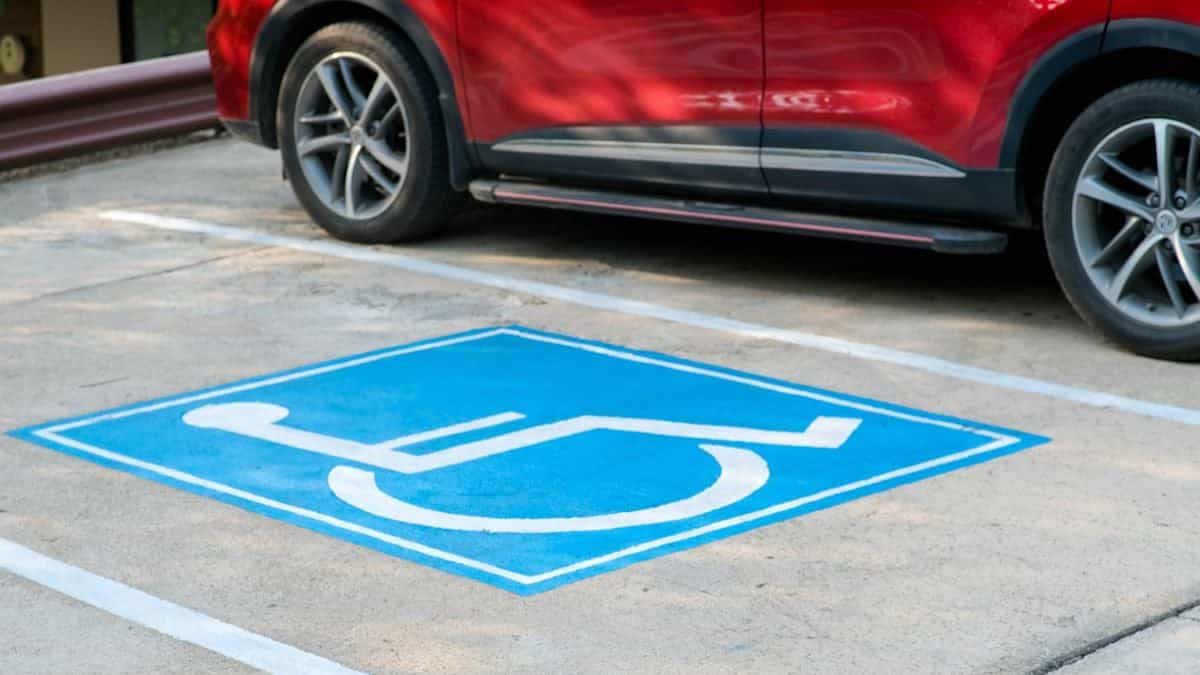Show table of content Hide table of content
A frustrated husband in Chambéry, France, took matters into his own hands when confronted with a persistent problem affecting his disabled wife’s mobility. In an act that has sparked debate about disability rights and vigilante justice, the man damaged dozens of vehicles illegally parked in spaces reserved for people with disabilities. His actions, while stemming from legitimate concerns, have landed him in legal trouble and highlighted the ongoing challenges faced by those with mobility issues.
Extreme action against parking violations
On March 24, 2025, police in Chambéry arrested a local man caught in the act of puncturing car tires with a screwdriver. The incident occurred late at night when members of the anti-crime brigade spotted the individual damaging a parked vehicle. They promptly detained him and brought him to the police station for questioning.
During his interrogation, the man made a startling confession. He admitted to damaging not just one, but 53 vehicles throughout the same area. His motivation wasn’t random vandalism but targeted action against cars parked in spaces designated for disabled drivers without displaying the required mobility inclusion card.
Life This TikToker buys a used van and realizes it has a hidden surveillance device.
The man explained his wife lives with a disability that significantly impacts her mobility. Her daily struggles intensified when they repeatedly couldn’t find accessible parking because non-disabled drivers had taken these reserved spaces. Similar situations have led to positive community responses elsewhere, such as when a police officer helped collect more than $19,000 for a deliveryman who received only a $2 tip after facing hardship.
After several hours in custody, authorities released the man pending further legal proceedings. Despite his release, he faces serious legal consequences for his vigilante approach to the problem. He will soon appear before a judge to answer for the property damage he caused.
Understanding disabled parking regulations
In France, as in many countries, parking spaces marked for disabled use are strictly regulated. These spaces provide essential accessibility for people with mobility challenges, allowing them closer access to buildings and services. The wider spaces accommodate wheelchair transfers and specialized vehicle equipment.
According to French law, only vehicles displaying an official mobility inclusion card may legally park in these designated spaces. This regulation exists to ensure that those who genuinely need these accommodations can access them. The French government website ecologie.gouv.fr clearly states that regulations prohibit parking in spaces reserved for disabled individuals unless the vehicle displays one of two authorized cards.
Life Say goodbye to flat and deep plates, here’s the new dinnerware trend for 2025.
Violators face substantial penalties, with fines reaching €135 (approximately $145). Despite these consequences, illegal parking in disabled spaces remains distressingly common. The frequency of these violations represents more than mere inconvenience—it creates significant barriers for disabled individuals attempting to navigate their communities.
This situation mirrors other instances where communities neglect vulnerable populations, though some stories highlight compassion, like when a shelter takes in a dog abandoned in a parking lot, with the note around its neck bringing staff to tears—showing how proper care for the vulnerable touches people deeply.
Broader implications for disability rights
The Chambéry incident has sparked important conversations about disability rights enforcement and the frustrations faced by those living with disabilities. While the husband’s actions cannot be condoned from a legal perspective, many disability advocates understand the anger and helplessness that likely motivated him.
For people with mobility challenges, finding that a designated accessible parking space has been taken by someone without a disability creates immediate and tangible obstacles. What might seem a minor inconvenience to others can effectively prevent a disabled person from accessing essential services, attending appointments, or participating in community activities.
The case highlights the gap between existing regulations and their enforcement. While laws protect these spaces for disabled use, enforcement often relies on reporting by citizens or sporadic police monitoring. This reactive approach leaves many violations unchecked, creating ongoing accessibility issues for disabled individuals.
Community awareness plays a critical role in addressing this problem. Many people park in disabled spaces out of convenience or rushing, without considering the significant impact on those who truly need them. Educational campaigns about the importance of these spaces could help reduce violations and increase respect for accessibility needs.
This incident serves as a reminder that accessibility isn’t a luxury or special treatment—it’s a fundamental right that allows people with disabilities to participate fully in society. When those rights are consistently violated, frustration builds, sometimes leading to extreme responses like that seen in Chambéry.
While taking justice into one’s own hands is never the answer, this case compels communities to examine how they can better protect the rights of disabled citizens through consistent enforcement, public education, and fostering a culture of respect for accessibility needs.
Life Everyone had this toy in the ’90s, and it now sells for over $3,000.


